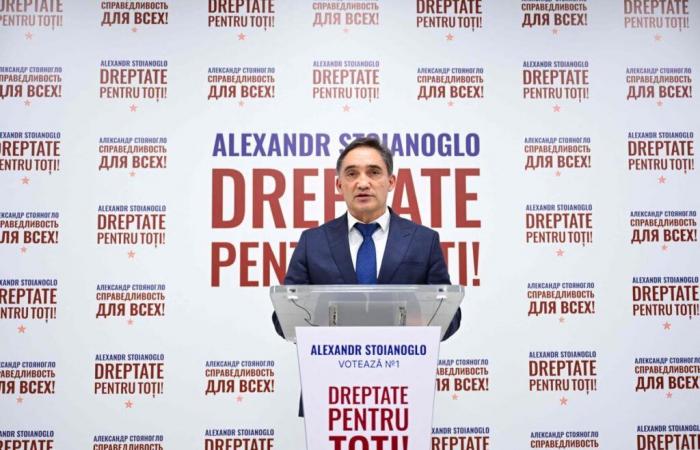Outgoing head of state Maia Sandu, a 52-year-old fervent pro-Western woman who turned her back on Moscow after the invasion of neighboring Ukraine, faces Alexandr Stoianoglo, a former prosecutor supported by pro-Russian socialists.
Without risking numerical predictions this time, analysts all predict a close battle with, as during the legislative elections in Georgia, another former Soviet republic, fears of Russian interference despite firm denials from the Kremlin.
Ms. Sandu came well ahead on October 20 with 42.5% of the votes but her 57-year-old rival, who collected nearly 26%, can count on the support of several small candidates. Polling stations opened at 7 a.m. (5 a.m. GMT) and closed at 9 p.m., with the first partial results expected an hour later.
“Honest Report Cards”
Between the two rounds, the presidential camp intensified its campaign on social networks and in the villages to try to counter the massive vote buying which, according to the authorities, tainted the results of the referendum, which was much more contested than expected. (50.35% for “yes”).
Despite a fight described as “unfair”, “we have taken the first step”, welcomed Maia Sandu.
“We still have to win the elections on Sunday, and then set the course towards European integration by 2030,” she said, while accession negotiations were formally opened in June.
In her final message to the 2.6 million inhabitants, the former World Bank economist called for mobilization so that “honest bulletins” have the last word.
“Don’t give in to crooks”: the message was hammered home in the final days of a tense campaign. “If you are offered money to vote against a candidate, refuse,” the police warned, in telephone warnings or even through loudspeakers in supermarkets.
Opposite, Mr. Stoianoglo, with a smooth speech where Russian words often mingle with the official Romanian language, promised to be “the president of all”, pleading for a balanced foreign policy which “will not divide society”.
The country is in fact extremely polarized, between on one side a diaspora and a capital mainly committed to the European cause, and on the other, the rural areas and two regions, the separatist province of Transdniestria and autonomous Gagauzia, turned towards Russia.
“At a high price”
In Chisinau, a 56-year-old retiree, speaking on condition of anonymity, Acsenia, regrets that “Soviet overtones continue to permeate to the very core” this former USSR state. She “trusts Maia Sandu to guide us on the right path, alongside the great and free European powers, far from the type of dictatorship that some are trying to impose on us.”
But others, like Zinovia Zaharovna, 75, refuse to join the EU, insisting on the need to remain “independent”. “Many also fear being drawn into war,” says Andrei Curararu of the WatchDog think tank. They will therefore prefer “a candidate on good terms with Moscow, seeing this as a guarantee of not being attacked”.
The vote is being closely followed from Brussels to Washington, where there are concerns about Russia's attempt to disrupt the electoral process. Ahead of the vote, the police reported significant disinformation operations through the sending of false emails and death threats, “a virulent attack” aimed, according to Prime Minister Dorin Recean, at “sowing panic and fear” and to dissuade voters from traveling.






